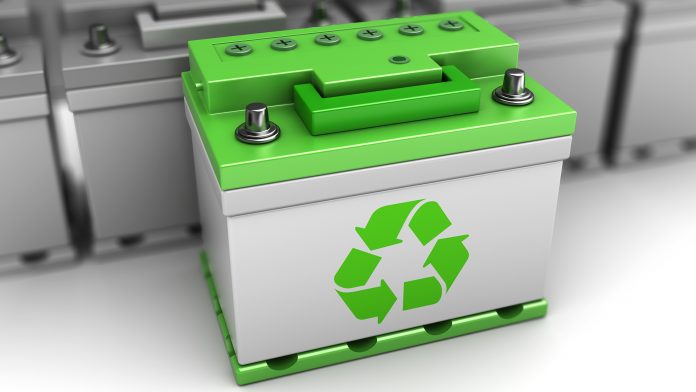Lead-acid batteries have been indispensable for industrial progress, but at what cost?
As the world is looking towards cleaner and greener energy and recycling solutions, we ask: where will the surplus lead go? Is there a better way?
The lead-acid battery (LAB) was invented in 1859 – that is, before the mechanical generation of electricity. Today, LABs command the largest market share by battery type; and are expected to reach $95bn (€83.62bn) by 2026. LABs are referred to as the world’s most successfully recycled commodity product. In the US, 100% of these batteries are collected and processed, while in Europe the recycling rates are as high as 95%.
But why is LAB recycling so successful?
The answer is simple: lead metal is infinitely recyclable and the economics work. This is despite the fact that smelting, the technology which recycles lead batteries, is the world’s most polluting industry.
Lead batteries are safe, proven and affordable. They are used widely in the automotive, traction and uninterruptible power supply sectors. As the world is migrating towards cleaner and greener technologies, it is crucial to recognise the widespread importance of LABs.
LABs can support tomorrow’s cleantech industry and our transition to a zero-waste future. But for this to happen, the incumbent LAB recycling industry must become cleaner, more energy efficient and less wasteful.
Aurelius and its innovative technology for the recycling of lead battery paste, the active ingredient in LABs, is here to catalyse this change. Funded by Horizon 2020 and Innovate UK, our technology starts with separation of waste battery paste from lead batteries. The spent materials are regenerated in a water-based recycling process to produce ‘battery-ready’ lead oxide.
The process, dubbed FenixPb, offers low startup costs (around a seventh) in comparison to smelting and similar operating costs. It is ‘energy positive’, generating up to 5,000 MWh of thermal energy per 10,000 tonnes throughput; also, it produces zero waste; does not emit noxious gases; and reduces the carbon footprint by approximately 85%.
The hydrometallurgical process
Conventional recycling uses high temperature smelting at around 1,200 ⁰C. High levels of slag, lead fumes and noxious gases such as sulphur dioxide must be controlled. This process is energy- and capital-intensive; and has a high impact on the environment.
Our approach, FenixPb, desulphurises the battery paste before passing it through a series of chemical treatment steps in water media. The lead is firstly dissolved to extract impurities; and then the pure lead salts are converted, via chemical reaction with citric acid, to a pure lead citrate. Next, the lead citrate thermally degrades to produce lead oxide of various compositions required by manufacturers.
The project’s demonstrator has yielded a continuous flow of around 1.5 tonnes per hour of pure lead oxide – equivalent to 25,000 tonnes per year of battery throughput. Meanwhile, battery manufacturers can expect an increase in energy density due to the nanostructured nature of the FenixPb lead oxide.
Aurelius Technology Director Dr Athan Fox says: “FenixPb is unique in that we are capable of producing a 99.99% lead compound directly from spent batteries. We do not generate any waste – battery paste additives are separated cleanly from our reaction.”
Benefiting consumers, business and the environment
The FenixPb process increases the amount of recycling that can be safely undertaken in Europe, complementing existing infrastructure, without displacing jobs. The team intend to make the process commercially available later this year, with a key franchisee in each economic area. They currently have around 60 expressions of interest, with 12 key licensees under consideration.
“To achieve our vision of a world without waste, we will also drive research forward on new battery designs and materials for use with our nanostructured lead oxide,” says CEO Miles Freeman.







